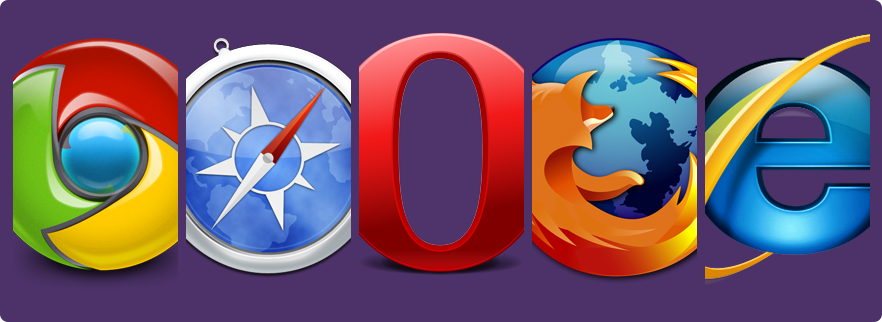
It’s a tough question: Which of the many available internet browsers is the best for business? Well, to begin answering that we need to look first at what features and functions are most important to you and your business. Here’s 3 things to consider when choosing a browser:
Will it sync?
- Perhaps the most important part of this whole quandary is whether the browser will sync across your devices from desktop to tablet to smartphone. Will you be able to access the same bookmarks and/or reading lists on different devices? Do you use other Android or Apple devices that currently backup your data and sync your apps to the cloud? The answer here may well determine the best browser to use for business as well as off-the-clock activities.
Safari is, of course, great on Apple mobile devices like iPads and iPhones. Apple stopped trying to convince PC users to switch over when they ended support for Safari for Windows in 2012. And on an older Mac desktop, Safari is a little slow and not the prettiest in terms of design and layout. But it does have a built-in Reading List (similar to add-on apps like Pocket) and makes use of iCloud, which keeps the tabs you have open in Safari across your iPad, iPhone, iPod touch, and Mac. That way you can go from one device to the next and pick up browsing wherever you left off. Safari was also designed to work in conjunction with App Nap, a new feature in OS X Mavericks, making it the clear winner for laptop users concerned with saving battery power.
Users of Android devices that currently backup to the Google Cloud will likely find Chrome their best option for much the same reason as Apple users will want Safari. Having all your open tabs synced across every device running Chrome or Android OS will definitely have its advantages in terms of staying on track and getting work done.
For those not beholden to Mac or Android devices in terms of cloud-functionality, the question becomes more about which browser syncs things in a way you like. And that will take some playing around on the user’s part. Lots of browsers offer some way to sync open pages and bookmarks across devices that have them installed. One such browser that does a decent job of syncing and is available for most smartphones, tablets, and desktops is Firefox from Mozilla. You can do all the basic syncing across multiple devices with Firefox just like you would with Chrome or Safari, and it’s one of the faster browsers for desktops. Oh, and if you decide not to go with IE on a windows machine but still want in on iCloud syncing, Apple released some extensions for Chrome and Firefox that do just that.
Is it secure?
- What makes a browser secure? Well, what you don’t want is a browser that’s relatively unknown, unsupported, or untested. There’s a ton of alternative browsers out there, but
- or get updates on a regular basis. The big names like
- (IE), Safari, Chrome, and Firefox all have a team of people working consistently to address issues and fix bugs in current versions. As such, these browsers are updated on the regular to stay one step ahead of, or at least in pace with malicious hackers.
In terms of security, what you’re looking for is a browser with some sort of built-in Do Not Track feature. One that does a good job on the security front is the new Internet Explorer. I know. I know. But IE has actually come a long way from being the default (and largely ignored) browser on machines running windows. These days it’s pretty in a minimalist way, blocks 99.96% of socially–engineered malware, and is ideal for those running the touchscreen-friendly Windows 8. Oh, and it has that kick-ass built-in Do Not Track feature, an InPrivate browsing mode (similar to Chrome’s Incognito), and can sync things across all your Windows-running devices. Plus, it’s pretty fast. On par with than Chrome, Opera, Safari, etc. Crazy right?
Other browsers have the same or similar Do Not Track software built-in, or allow for a third party add-on. You can check to see if the browser you’re using has Do Not Track running and learn how to turn it on by going HERE.
What’s the function?
- Yep, syncing and security are pretty important when choosing a browser. But how you’re going to use the browser and
- a consideration. If you’re a developer then you’re more likely to choose Firefox, Chrome, or IE because of the development tools each browser offers. But if keep all your tabs, apps, and data synced your devices is what’s most required to do what you need to do, then by all means go with the browser designed for your OS. If it’s neither a question of development tools or easy syncing, then likely speed and design will be the biggest factors in choosing a browser for business.
Accepting that browsers perform differently on each OS, the fastest ones are IE 10, Chrome, and Firefox (in that order). Opera has fallen behind in terms of speed (at least on machines running Windows), but might have a design that you really like. As for Safari, unless you’re an Apple user, browse elsewhere.
So there you have it. The best browsers for business as determined by the Ripple IT Support Team. Let us know if you have a favorite that we didn’t mention, or if you discover some features that sets one of the mentioned browser apart from the pack.
Don't Fall Behind!
Get the latest work-from-home and Humans First® IT tips straight to your inbox.